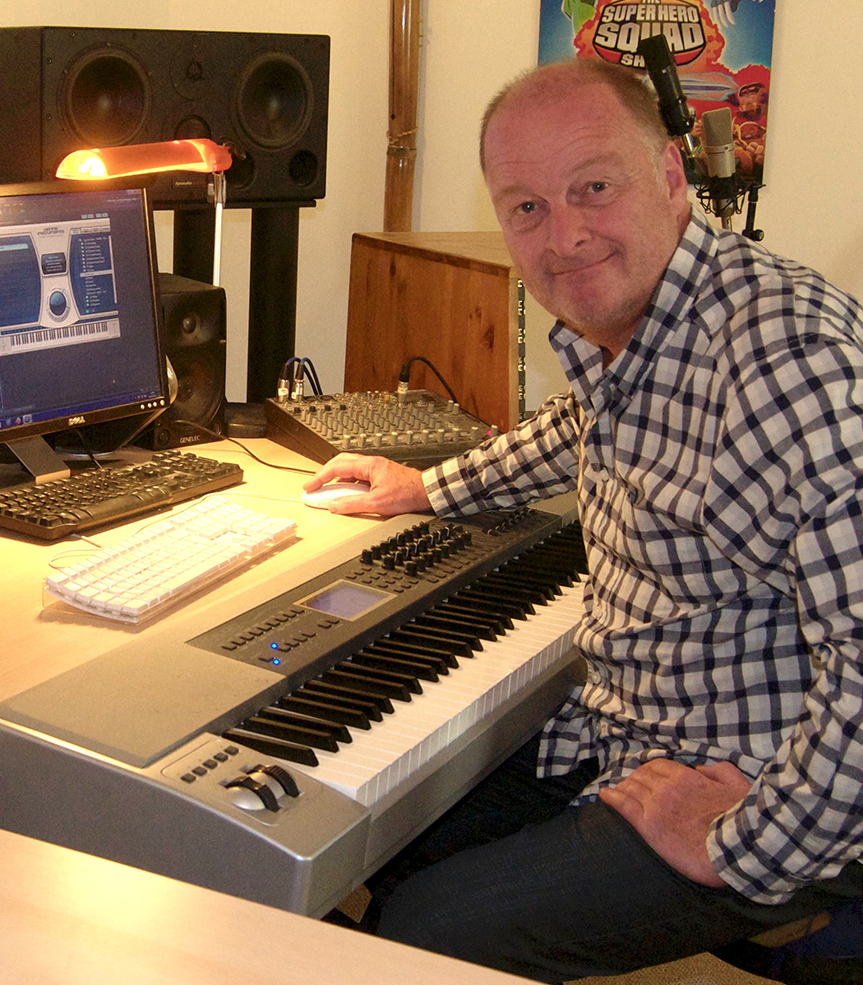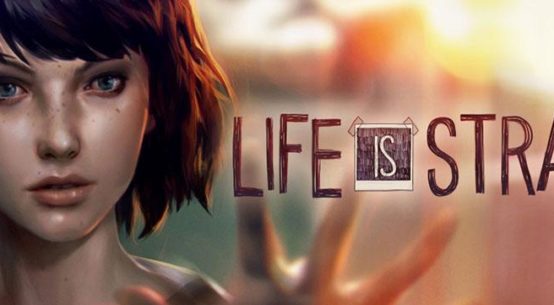
Sam Hughes speaks to Guy Michelmore about his career so far and the recent fruition of the ThinkSpace Education’s recent online game audio masters degrees.
Read the full interview below!
Thanks for joining us Guy! It’s great to have you on the site.
So before we talk about ThinkSpace Education, let’s chat about your career so far. How did you begin your journey into music composition?
I’ve always written music and way back in the day got a Tascam 4 track and a keyboard and I was sorted! In my 20’s I was working for a TV company as a reporter and one of the sound recordists was moonlighting on a corporate film with the company’s gear! He asked for some music and then that led to something else and something else. 25 years later…..
Would you say there’s a turning point that kick-started your career?
Several of them actually. Selling my first news theme to the BBC back in the 90’s was a big one. Then the first of the Marvel animated features Ultimate Avengers was a big deal as well and led to a lot of work with them.
What would you say is the biggest challenge of being a composer?
Reinventing yourself every 3 or 4 years to stay fresh and relevant. The cycle time keeps going down so it’s almost a constant process now. You simply can’t develop a style and stick to it anymore. Also reinventing the business model to keep commissioned music relevant and cost effective for clients in a rapidly changing landscape. Higher productivity on lower fees means you can still make more money than before. There’s more and more media so it is quite possible but the average spend is a lot lower.
Now let’s talk about ThinkSpace Education, how did the courses come to fruition?
20 years ago, young graduates kept phoning me up asking how to do what I do so after my 48th hour long phone call, I wrote it all down, interviewed some of my colleagues and started teaching people. Since then it’s gone from strength to strength with the master’s degrees starting in 2015. We now have 50 postgrads with more joining every 6 months. Online is clearly working for a lot of people.
It’s always great to see game audio specific courses, how did you define the curriculum?
By talking to the industry. The only thing that really matters if you want to get people into employment is what their employers want to see in terms of skill sets. We have lots of audio directors on board helping shape every aspect of the course so the students stand the best possible chance of success. There’s a lot of excitement as we’re the first to offer a game music and audio master’s online anywhere in the world so it opens a door for a lot of people.
So just for the benefit of our readers to catch in one sentence, what are the course requirements, where are the courses and do they come under student loans?
You need a demo reel showing you can work at a competent level as a composer or sound designer, showing us potential, and a first degree in any subject (although there is still a route for those without but with a lot of professional experience). UK students get Career Development Loans worth up to £10,000. We’re working on student loans both in the UK and US but there are some legislative problems and the whole thing is very fluid right now. But everyone can benefit from our interest free payment program which spreads the cost of the course over the length of your course.
What options are there in terms of length and flexibility, for example can people work and do this course?
Absolutely most of our students work at the same time. That’s one of the big advantages of online as well as not having to relocate which is another big saving in terms of money. Full time is around 30 hours a week for 12 months. Part time is the same material over two or three years so it can be as little as 10 hours a week on the slowest track. Students start in September or January so there is lots of choice.
You have a fair few composers and sound designers on board, can you tell us who they are?
We have around 25 tutors all over the world who do online workshops, give feedback on assignments or recorded lectures and demonstrations. Not all of them do everything but we have a wonderful resource to draw upon. They cover everything from feature films to commercials, orchestration to sound design and most of them at the very top of the business. They’re all people working there right now so it’s bang up-to-date information.
Amongst the many names on the games side we have;
Erasmus Talbot – Elite Dangerous, Elite Dangerous Horizons, Just Cause 3, The Asterix War
Frank Petreikis – Rise Of The Tomb Raider, Dragon Age Inquisition, Mass Effect 3
Pierre Griscelli – Rocksteady – Batman Arkham VR
Dr Stephen Baystead – Need for Speed, Project Cars, Red Bull Air race
Pete Ward – F1. Colin McRay, Dirt
And loads more. Our wider circle of tutors’ credits include Live Free Die Hard, Cloudy with a Chance of Meatballs, Hunger Games, Goosebumps, I Robot, Terminator 3, Star Trek: Enterprise, Lassie, Jungle Book, A Bug’s Life, Avengers: Earths Mightiest Heroes, Spectre Trailer, Batman: Arkham Origins, Iron Man: Armored Adventures, Oscar nominated feature films, and many, many more…
Would you say that there’s a recommended age for these courses?
Not really. We have some students straight out of university and others who are in their 60’s. A lot of students are out in the working world and are in their 30’s or 40’s.
OK, so I’ve decided I want to get a job in game audio, why does a masters help and more specifically, why would these ones be a good choice for me?
Great! Glad you’ve decided to join the industry.
Why do you need a master’s? You need to master high level complex skills, gain insights into the creative process and how that fits into a non-liner universe and you need a lot of help from top level professionals who really know what they’re talking about. And if you can do all this while staying at home, studying online and even still holding down a job so much the better. That’s what we do and a master’s course is the perfect place to develop that elusive combination of technical and creative skills.
Our course is project-based so you will have worked on a wide range of real-life projects including some commercial releases, designing and implementing your music and audio in the game using middleware. We don’t teach a play book approach to game audio, we teach creative problem solving as the solution to the next problem is seldom the same as the last. You will know what is expected of you because many of our tutors are Audio Directors and Audio Leads who would be hiring you. How to work remotely and collaborate as part of a distributed team is what distance learning is all about. These are core skills in game music and audio. Online learning prepares you for the way the industry works. Yes it can be tough but the problems you will face will be the same challenges you will need to overcome when you start working.
A fun question to finish off! If you could have a drink with anyone alive or dead who would it be?
Donald Trump’s hairdresser…“just how do you”….no only kidding.
Mozart? Are you really that smart? Yes obviously. Bernard Herrmann – bit of a hero of mine. No maybe Donald’s hairdresser….. I mean how does he do that?
LINKS
Official
We hope you enjoyed the interview, feel free to check out more of these at the Interviews page. Also, don’t forget to sign up to our Monthly Newsletter to make sure you don’t miss anything!
If you’re feeling generous there’s also our Patreon page and we appreciate all the support!
The Sound Architect





